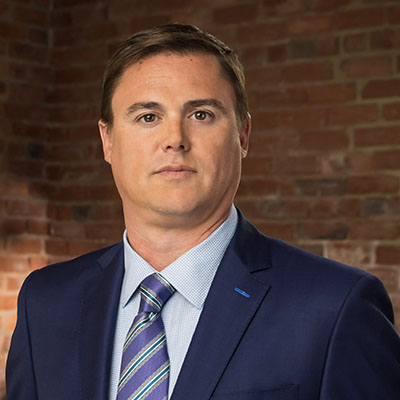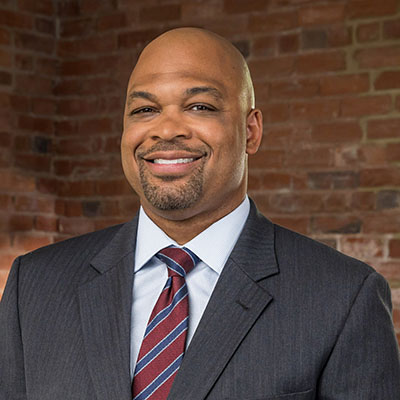Personal injury attorneys have the privilege and responsibility to represent individuals injured through no fault of their own. When one of your family members, friends, neighbors, or co-workers is injured, they are confronted with a complicated claims process that is entirely foreign to them.

After being ignored, leaving messages without a return phone call for weeks or even months, these injured individuals are often told – by a complete stranger – that:
- Their medical bills aren’t “covered.”
- That the treatment their doctor prescribed wasn’t “medically necessary.”
- That the amount of time they missed from work was “unreasonable.”
- Insurance adjusters often tell their own paying customers that the impact of their injuries on their daily lives isn’t as significant or important as they believe. They receive a ‘take it or leave it’ offer and are left with a litany of questions and nowhere to turn.
Personal injury attorneys fight as hard as they can for as long as it takes to get these injured individuals the full and fair financial compensation they are entitled to under the law. Despite providing critical advocacy for vulnerable people, many negative stereotypes surrounding the practice of personal injury law persist.
Personal injury attorneys don’t chase ambulances. They fight at the side of children, police officers, firefighters, and teachers who face tremendous pain, suffering and inconvenience because of someone else’s negligence. Personal injury attorneys stand up to multi-billion-dollar insurance corporations who systematically victimize injured people, by paying as little compensation as possible to protect their bottom line.
This article is designed to address and correct some of the most common myths surrounding the practice of personal injury law.
Myth #1: Personal injury attorneys are expensive.
Personal injury attorneys work almost exclusively on a contingent fee basis. Contingent means “dependent or conditioned by something else.” By taking a case on contingency, the attorney’s fee is dependent on whether they obtain a successful verdict or settlement for the client. Once a verdict is returned or a settlement is negotiated, these lawyers take a percentage fee of the gross recovery they obtained for their client.
The rules of ethics that govern the practice of law in Virginia require that this fee be both reasonable and adequately explained to the client at the beginning of the representation. Working for a contingent fee puts the client and their attorney squarely in the same corner for the duration of the case. The larger the recovery for the client, the larger the fee for the attorney.
From the start, working from a contingent fee provides injured people with access to the highest level of legal representation at no upfront cost. At a big downtown law firm, you can expect to pay hundreds of dollars for a 30-minute initial consultation. In a contingency fee structure, the most skilled personal injury attorney in the state won’t charge the client a dime for that same initial meeting.
In the aftermath of a serious, life-altering injury, people who are out of work and facing a mountain of growing medical expenses can’t afford to pay for a qualified and experienced attorney. When personal injury attorneys agree to work for a contingency fee, they provide access to justice that would otherwise be unobtainable for thousands of people every year.
Similarly, contingent fee agreements are very favorable for the client – especially considering the risk of unexpected issues. At the outset of any case, you never truly know what obstacles may arise prior to resolution. Attorneys and clients often come upon:
- Liability disputes
- Pre-existing medical conditions
- Extensive medical treatment plans
- Insurance coverage issues
When these things happen, a personal injury attorney working on a contingent fee can spend hundreds of hours and work for years to obtain a recovery for their injured client. If the case is lost, the fee for years of work is $0. If the case settles for a compromised value, the attorney’s fee is far less than what may have been expected. If the case is successful, the attorney’s fee is still wholly proportional to the client’s recovery.
Compare this to the world of big law with hourly billing. Those hundreds of hours correlate to client billing. If the case is lost, the attorney’s fee is still owed. If there is a compromise reached, the attorney’s fee remains the same. At the end of the day, the amount of the client’s recovery has no bearing on the ultimate fee that is charged by their attorney.
In practical application, the contingent fee agreement provides injured people with access to skilled and experienced trial attorneys they otherwise couldn’t afford. Lawyers who will work hand-in-hand with them for the duration of their case, with the singular goal of obtaining the maximum amount of financial compensation available under the law. At the same time, the financial risk associated with the representation sits squarely on the shoulders of the attorney, not with the client. The contention that personal injury attorneys are expensive is fundamentally misplaced and is simply untrue.

Myth #2: Personal injury attorneys add time to the resolution of your case.
This myth harkens back to the time-honored question: Do you want something done, or do you want something done correctly?
Most insurance adjusters want to resolve bodily injury claims as quickly as possible. To accomplish this, they will often call injured people in the days and weeks immediately following an accident and make low ball settlement offers. This is in hopes that they can entice the claimant to sign a release quickly in exchange for a relatively small payout. What many people don’t realize is that signing this release absolves the insurance company from any future financial liability associated with the event or the injury.
There are several problems with resolving personal injury claims quickly. The first, and most obvious one, is that under Virginia law a personal injury plaintiff is entitled to full and fair compensation for:
“[A]ny bodily injuries he sustained and their effect on his health according to their degree and probable duration. [A]ny physical pain and mental anguish he suffered in the past and any that he may be reasonably expected to suffer in the future.”… And “any medical expenses incurred in the past and any that may be reasonably expected to occur in the future (internal emphasis added).”
In the days and weeks following an injury, even the most experienced physicians cannot accurately predict the future ramifications that the injury will have on a person’s life. It takes time for the body to heal, and everybody is different. If you resolve your case quickly, and it turns out that you need a hundred-thousand-dollar surgery that is going to take you out of work for three months, and will leave you will a lifetime of residual pain, it’s too late for you to make a financial recovery for any of it. Your case is closed.
The second issue that arises when claims are settled too quickly involves medical billing. When a person is injured through no fault of their own and receives medical treatment to address those injuries, the medical providers are largely unconcerned with any third-party recovery, such as payment from the defendant’s insurance policy. The hospitals and physicians feel that they provided a service, and expect the client to pay for the services rendered. Medical bills are the responsibility of the patient. Perhaps this is why healthcare costs are the number one cause of bankruptcy for American families.
When a medical bill is incurred, it is commonly sent to a health insurance company for processing and payment. For individuals receiving Medicaid or Medicare, the bill is sent to the state or federal government for processing and payment. An Explanation of Benefits letter is then mailed to the patient, which shows:
- Any contractual discounts applied to their bill
- Any payments made by the health insurer
- Any outstanding balance (co-pay or deductible) that may still be owed
Unfortunately, bills that are sent for payment are regularly denied or otherwise returned unpaid for a wide variety of reasons. The worst case scenario for a personal injury claimant is that they agree to a quick settlement, only to learn that they still owe thousands of dollars in outstanding medical costs.
While it may be true that the involvement of a personal injury attorney can add time to the resolution of a personal injury case, it is the attorney’s job to ensure that the case is prepared correctly, that it resolves for full and fair value, and that their client is not left with medical debt when the case is over.

Myth #3: You don’t need a personal injury lawyer – you can often get just as much on your own.
The legal profession grows more specialized every day. The time of the general practitioner who handled a variety of legal matters, from divorce to traffic tickets, is at an end. Today, the law governing personal injury claims, insurance coverage agreements, and health insurance repayment responsibilities is tremendously complex. Even lawyers who passed the bar and practice in other subject areas recognize that they are out of their depth when it comes to effectively handling personal injury cases. That is why they regularly refer their personal injury cases to us.
Clients come to Allen & Allen for an initial consultation and regularly tell us that the insurance adjuster promised to pay for their medical bills and, in turn, offered them compensation that would cover the out-of-pocket costs associated with their initial treatment. While that may seem fair to a layperson, they don’t realize that under black-letter Virginia law, the responsible party’s insurance company must pay the entire amount of the medical bill; not just reimburse out-of-pocket expenses. By negotiating directly with the injured individual, the insurance company is trying to leverage the layperson’s lack of knowledge and understanding regarding the law.
Let’s say the adjuster isn’t trying to take advantage of an injured claimant’s naivete when it comes to Virginia personal injury law. There is still a significant power imbalance between an insurance company and an individual when it comes to negotiation. It borders on impossible to conceive of a layperson drafting, filing, and properly serving their own lawsuit, let alone navigating themselves through a contested litigation process and a full jury trial.
Accordingly, when the adjuster stands firm on an insultingly low offer, what is the injured claimant really going to do about it? As experienced personal injury attorneys at Allen & Allen, our hands aren’t tied. We respond to these offers by immediately filing a lawsuit and moving the case into litigation, something a layperson simply can’t do on their own.
We all rely on experts and specialists on a regular basis. When we need medical attention, we go to a doctor. When we need a new roof, we call a roofer. When we need groceries, we go to a grocery store. The same logic applies to the personal injury process. Seeking immediate help from a personal injury attorney in the aftermath of an accident is common sense.

Myth #4: Hiring a personal injury attorney means you’re focused on money or you’re being greedy.
People hire personal injury attorneys to secure the financial compensation that they deserve in the aftermath of a motor vehicle collision, or other accident. Virginia law entitles personal injury claimants to full and fair financial compensation, not unjust or improper enrichment.
Again, full and fair financial compensation is a concept that we all deal with on a regular basis. When you go to the grocery store and buy a gallon of milk, the $4.00 that you hand to the cashier is full and fair compensation for the milk. When you buy a car and pay the seller $35,000, that is full and fair compensation for the vehicle. The examples are endless. Full and fair financial compensation refers to an exchange that both sides of a transaction believe to be fair and appropriate.
Very few, if any, people would choose to sustain a serious physical injury in hopes that at some point in the future they would receive a financial award. In fact, even after receiving substantial financial recoveries, every client I have had the privilege of representing over the course of the last decade would have strongly preferred not to be injured at all.
Unfortunately, we don’t have time machines. The only remedy available to individuals who are injured through no fault of their own is the full and fair financial compensation to which they are entitled. Seeking every dollar you are entitled to is neither greedy nor is it inappropriate. It is simply the mechanism that the law has put in place to redress the harm that has been caused.

Myth #5: When you hire a large personal injury law firm, you lose the benefit of individual attention.
Allen, Allen, Allen & Allen has successfully represented injured people for more than 110 years. We employ a client-first approach in every one of our cases and our success is measured by our client’s satisfaction with the results that we obtain. It is important to remember that every single client is different and every case is unique. Physical injuries affect everyone in varied ways. As such, it would be impossible to represent a plaintiff without developing a specific understanding of how their life was impacted by their injury. Any lawyer who doesn’t take a client-centered, individualized approach to their representation, cannot effectively represent their client.
While myths about personal injury lawyers may persist, the simple truth is that we work hand-in-hand with our clients to navigate a complex process. Our goal is to obtain full and fair compensation in the aftermath of a tragic event. If you have been injured through no fault of your own, selecting the right personal injury attorney could be one of the most important decisions you will make. Allen & Allen spent the last century building the largest and best personal injury law firm in Virginia. Our collective experience and dedication to our clients is second to none. Call us for a free consultation today, at 866-388-1307.




